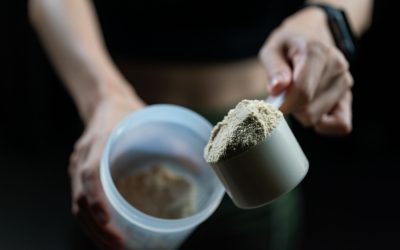Whether you’re a seasoned marathoner or gearing up for your first half marathon, we all know the importance of proper nutrition in our running journey.
One of the essential components of this is carb loading – a strategy often used by runners to maximize the storage of glycogen (or energy) in the muscles and liver. So, let’s talk about it!
But before we get into the nitty-gritty, let’s debunk a common myth: carb loading isn’t about devouring mountains of pasta the night before your race. It requires the right types of carbs at the correct times.
Carb Loading Basics
Carb loading is typically used for events that last longer than 90 minutes, where your body’s glycogen stores could be depleted. This includes half marathons and full marathons. Increasing your carb intake in the days leading up to the event can top off your glycogen stores, giving you more energy and potentially improving your performance.
When To Carb Load
Timing is everything when it comes to carb loading. The general rule of thumb is to increase your carbohydrate intake about 3-4 days before your race. However, don’t suddenly double or triple your carbs. The idea is to gradually increase your intake, making carbs about 70-80% of your total calorie intake by the day before the race.
What to Eat
Not all carbs are created equal when it comes to carb loading. The goal is to stick to complex carbs and avoid foods high in fiber to prevent gastrointestinal distress.
Here’s a list of some carb-rich foods that are great for carb-loading:
Pasta: Yes, pasta is a carb-loading staple, but not in the mounds you might imagine. A balanced serving of whole-grain pasta with lean protein and some veggies is a great way to incorporate carbs.
Rice: Brown rice is an excellent source of complex carbs. You can pair it with lean proteins or veggies.
Potatoes: Both sweet and white potatoes are excellent sources of carbs. Try them baked or boiled, and avoid high-fat toppings.
Whole Grain Bread: This can be a good source of carbs. Make a sandwich with lean protein, or have a slice with some almond butter for a tasty snack.
Quinoa: This grain is a good source of carbs and contains all nine essential amino acids, making it a great addition to your carb-loading plan.
Fruits: Bananas, oranges, and apples provide quick, easily digestible carbs. They’re great for a pre-run snack.
Stay Hydrated
As you increase your carb intake, don’t forget to increase your fluid intake. Carbs require water for storage. You need about 3 grams of water for each carbohydrate stored. So, keep that water bottle handy!
Note: with increased water storage, you will see a slight increase in weight. Don’t freak out — and don’t cut back on eating to maintain weight.
Calculating Your Carb Requirements
Now that you know what and when to eat, you might wonder, “How much should I eat?” Let’s do some quick math to figure that out.
First, it’s important to understand that the amount of carbohydrates you need depends on your total daily energy expenditure (TDEE), which includes your basal metabolic rate (the energy your body requires to function at rest), physical activity, and the thermic effect of food.
Here’s a simple way to calculate your carb requirements for carb loading:
Estimate Your Daily Caloric Needs:
A variety of online tools exist to calculate your daily caloric needs.
For a quick solution, multiply your weight in pounds by 15 (for moderate activity levels). So, if you weigh 150 pounds, your estimated daily caloric needs would be around 2,250 calories.
Calculate Your Carb Intake: Carbs should constitute about 70-80% of your caloric intake during carb loading. So, if your daily caloric needs are 2,250 calories, that means 1,575-1,800 calories should come from carbs.
Convert Calories to Grams: Carbohydrates have four calories per gram. So, to find out how many grams of carbs you need, divide your carb calories by 4. In our example, that would be around 394-450 grams of carbs daily.
Remember: these are rough estimates. Each person’s needs can vary based on their metabolism, the intensity of their training, and other factors. It’s always a good idea to consult a registered dietitian for personalized advice.
And, as always, listen to your body. If you’re feeling bloated or sluggish, it may be a sign of consuming too many carbs. Conversely, if you’re feeling low on energy, you may not be consuming enough. It’s a delicate balance, but you’ll find what works best for you with practice.
Preparation is critical, and proper nutrition is a big part of that. So, stock up on those quality carbs, hydrate, and prepare to conquer your next or half marathon!


